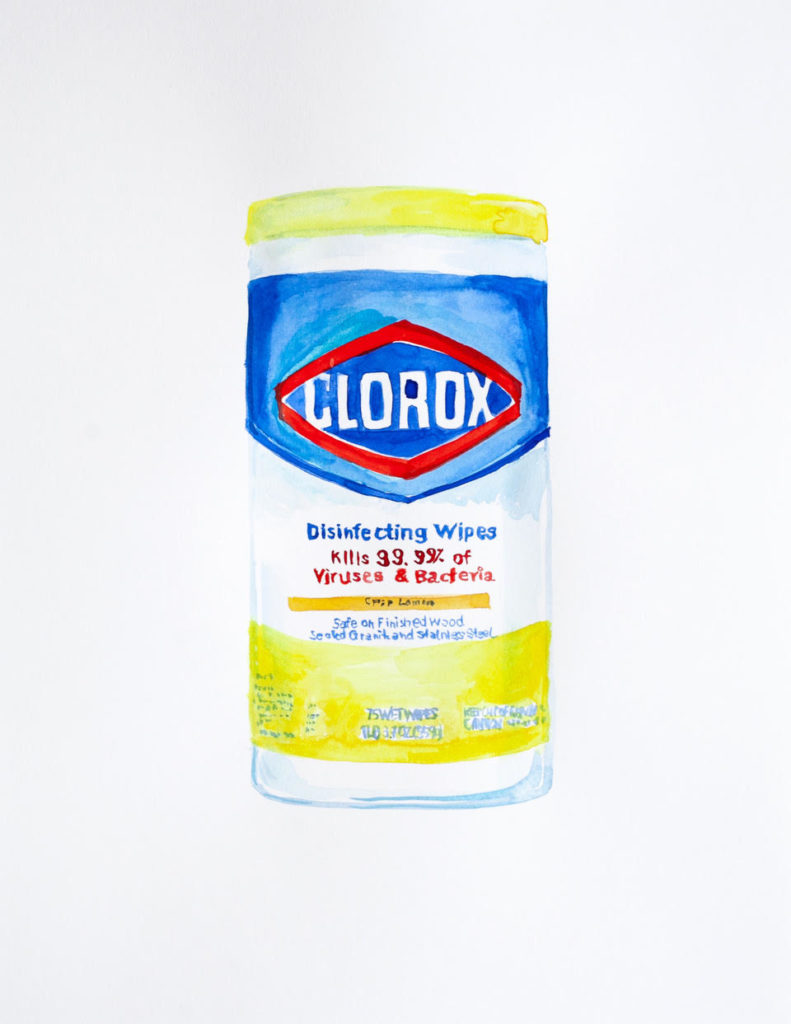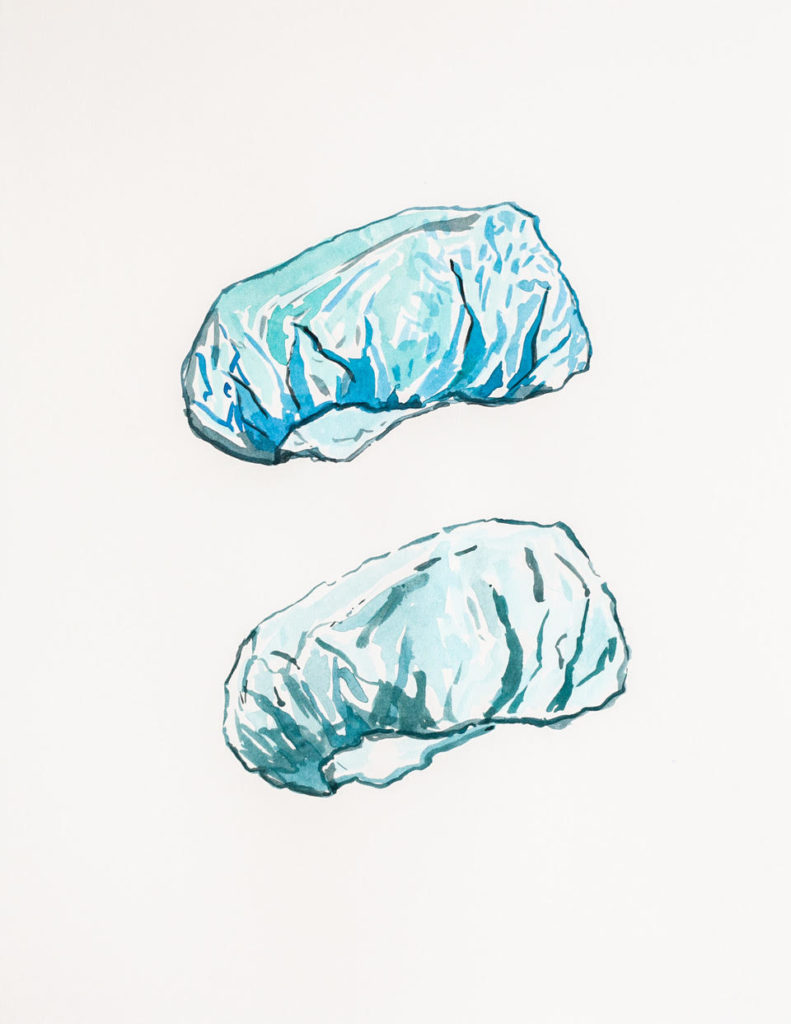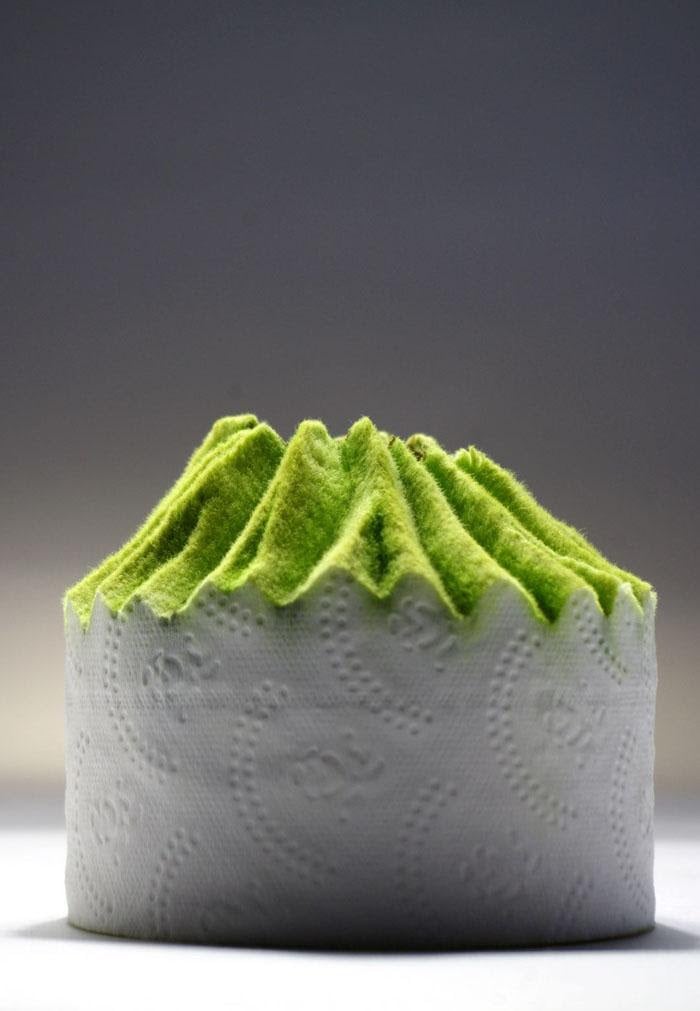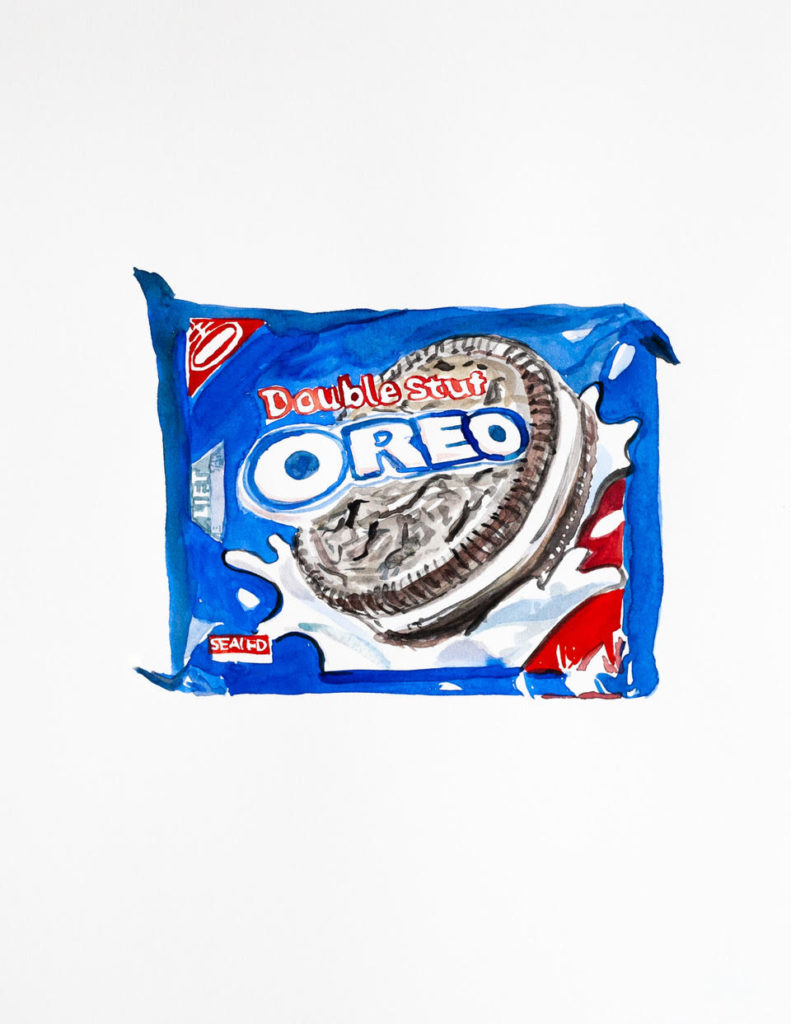In the Wake of Supermarket Shortages, Two Artists Are Reimagining Everyday Necessities


Artnet Gallery Network

Some artists need time to digest their surroundings; but for others, the tragedies and strangeness of this time have had an immediate influence.
Jayne Baum, director of New York’s JHB Gallery, was surprised to find out that two of her gallery’s artists, Guy Laramée and Bastienne Schmidt, had each already developed entirely new series responding to the virus: Laramée through intricate, unexpected sculptures made from toilet paper, and Schmidt through an encyclopedic series of watercolors depicting household products and cleaners.

Bastienne Schmidt, Everyday Objects in Pandemic Times, Shoe Covers (2020). Courtesy of Jayne Baum Gallery.
An anthropologist and artist, Laramée has spent his 30-year career carving mystical mountainscapes into old books. The artist admits he never so much as considered toilet paper as a potential medium until the crisis spurred bulk purchasing of the necessity.
“I must have unconsciously thought that it was too trivial, banal, and was never even considered nor triggered any interest,” Laramée said. Now he’s transforming rolls of the stuff into bizarrely intricate volcanic terrains in his “Toilet Paper Diary Volcano” series.
“I was in the studio, struggling with my mixed feelings,” explained the artist, who said he too struggled with impulses to stock up. “Suddenly I saw the image of a toilet paper volcano in my mind and I burst out in a roar of laughter. I did not have any rolls near me, so I had to steal one from the public washroom of the building… I raced back to the studio and an hour later I had the first example in my hands.”

Guy Laramée, Toilet Paper Diary Volcano #5, The Rain Falls Upon the Ashes (2020). Courtesy of JHB Gallery.
The material has proven to be extremely pliable as the artist has used it to create the appearance of grass, rock, even lava. “It is a fantastic material! So soft, easy to work with, a totally new challenge. I have worked with paper for 20 years but I never encountered this kind of fluffiness even in the softest paper stock,” he remarked with a lilt of hilarity.
But the project, Laramée noted, certainly expands beyond the realm of jest. “Each piece corresponds to a certain phase of the quarantine. The ups and downs; hopes and despairs; how different people dealt with the unknown; how images of ourselves came to be questioned and drawn anew. The visual image of the specific volcano, and the verbal image of the poetic line attached to each piece, both are part of an organic process where one creates the other,” he wrote.

Guy Laramée, Toilet Paper Diary Volcano #19: And the ashes of their empty world fell upon them like a slow rain of a broken dream. A dream (2020). Courtesy of JHB Gallery.
Similarly, Schmidt finds comedy and tragedy in these newly precious everyday objects.
“An inauspicious Clorox bottle suddenly became a metaphor about health and saving lives,” she remarked.
The daughter of an archeologist and raised in Greece, Schmidt has rendered her chosen objects with reverence and detail, pictured on empty white backgrounds, like specimens or ancient treasures, recorded for study, in a new series called “Everyday Object in Pandemic Times.”

Bastienne Schmidt, Everyday Objects in Pandemic Times, Oreo (2020). Courtesy of JHB Gallery.
“I see these objects as artifacts of our throw-away modern society. I believe we as artists are called to respond to difficult times, not necessarily to offer solutions, but to ask more questions” explained Schmidt.
She says that working through this era of heightened anxiety has provided her with a zen-like focus in her sociological act of observing domestic life, considering the meaning of American brand-name products like Heinz ketchup and Oreos alongside protective masks and soaps.
“The project became almost a Rorschach test about America,” she said. “All these iconic brands, in colorful packaging, can do nothing to stop a virus,” the artist considered.

Guy Laramée, Toilet Paper Diary Volcano #7: The end of winter. It was deemed extinct (2020). Courtesy of JHB Gallery.
Though working in distinctive methods, the artists both see their works as an avenue for stepping into the unknown.
“There seem to be at least two different reactions to urgency: you freeze or you run. And it is the same with the unknown. At a global level we just entered a completely uncharted territory,” Laramée said.
“Artists have uncertainty as their daily bread. The unknown is our modus vivendi. For most of us, it is not a choice. We just realized at some point in our lives that there is no way to know the future. And yet… by jumping into that river—call it insecurity, uncertainty, unknowing, whatever—facing the problem of the future fades away.”
The two artists’ works can be explored now on the Artnet Gallery Network.